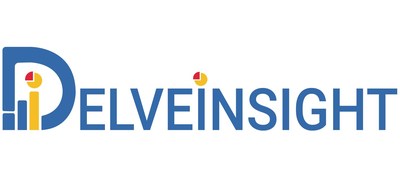ZEVASKYN Approval Positions Abeona as Emerging Player in Dystrophic Epidermolysis Bullosa Market | DelveInsight
Approximately a year after the FDA rejected its previous approval submission, Abeona announced that the agency had approved ZEVASKYN, its autologous cell-based gene therapy for both adult and pediatric patients with RDEB. This approval marks Abeona's entry into the commercial gene therapy market for dystrophic epidermolysis bullosa.
LAS VEGAS, May 22, 2025 /PRNewswire/ -- Dystrophic epidermolysis bullosa (DEB) is one of the main subtypes of epidermolysis bullosa, a group of genetic skin disorders characterized by varying degrees of fragility in the skin and mucous membranes. This fragility occurs due to the absence, deficiency, or malfunction of proteins critical to maintaining skin structure. In the 7MM, approximately 6,500 diagnosed prevalent cases of DEB were recorded in 2023, with the United States accounting for about 50% of these cases.

Currently, there is no cure for DEB. Management is primarily supportive, focusing on wound care, controlling pain and itching, preventing infections, providing nutritional assistance, and addressing complications that may arise.
Learn more about the DEB therapeutic market @ Dystrophic Epidermolysis Bullosa Treatment Market
As of now, only four therapies, namely FILSUVEZ (Chiesi Farmaceutici), VYJUVEK (Krystal Biotech), JACE (Japan Tissue Engineering), and recently approved ZEVASKYN (Abeona Therapeutics), have been approved for treating DEB, leaving a significant unmet need for effective and targeted dystrophic epidermolysis bullosa treatments.
FILSUVEZ (oleogel-S10), developed by Chiesi Farmaceutici, is a plant-based medicinal product derived from birch bark triterpenes. It was granted EU-wide marketing authorization on June 21, 2022. In December 2023, the FDA approved FILSUVEZ topical gel for the treatment of partial-thickness wounds in patients aged six months and older with Junctional or Dystrophic Epidermolysis Bullosa (JEB and DEB).
VYJUVEK (beremagene geperpavec), developed by Krystal Biotech, is a topical, repeat-dose gene therapy intended to deliver two functional copies of the COL7A1 gene directly to DEB wounds. It received FDA approval in May 2023 for use in DEB patients aged six months and older. The Marketing Authorization Application (MAA) for VYJUVEK has been validated by the European Medicines Agency's (EMA) Committee for Medicinal Products for Human Use (CHMP) and is currently under review.
JACE, developed by Japan Tissue Engineering, is a combination product featuring a human autologous epidermal cell sheet created using Green's technique. In December 2018, Japan's Ministry of Health, Labour and Welfare (MHLW) granted additional approval for JACE, expanding its use to include both JEB and DEB.
Dive deep into the treatment for dystrophic epidermolysis bullosa @ Dystrophic Epidermolysis Bullosa Drugs Market
Recently, in April 2025, Abeona Therapeutics Inc. announced that the FDA had approved ZEVASKYN (pz-cel), marking it as the first and only autologous, gene-modified cell therapy for treating wounds in both adult and pediatric patients with recessive dystrophic epidermolysis bullosa (RDEB)—a severe, inherited skin disorder with no known cure. ZEVASKYN is currently the only FDA-approved therapy for RDEB wounds that works with just a single application.
The approval was granted based on results from the Phase III VIITAL study (NCT04227106), a multi-center, randomized, intrapatient-controlled trial. The study successfully met its two main goals, showing significant wound healing (50% or more from baseline) and a reduction in pain, as measured by the Wong-Baker FACES scale, at six months post-treatment.
ZEVASKYN is anticipated to become available in Q3 2025 through ZEVASKYN Qualified Treatment Centers (QTCs)—specialized facilities across the U.S. with expertise in treating epidermolysis bullosa and administering cell and gene therapies, ensuring broad patient access.
To know more about the treatment for dystrophic epidermolysis bullosa in children, visit @ Dystrophic Epidermolysis Bullosa Drugs
Companies across the globe are diligently working toward the development of novel DEB treatment therapies with considerable amount of success over the years. Some of the drugs in the pipeline include Dabocemagene autoficel (Castle Creek Biosciences), ABCB5+ MSCs (RHEACELL), and ALLO-ASC-SHEET (Anterogen), among others.
Discover which therapies are expected to grab major DEB therapeutics market share @ Dystrophic Epidermolysis Bullosa Drugs Market
D-Fi, also referred to as FCX-007 (dabocemagene autoficel), is an investigational autologous gene therapy designed to treat dystrophic epidermolysis bullosa (DEB). It involves using the patient's own dermal fibroblasts, which are genetically engineered using a self-inactivating (SIN) lentiviral vector carrying the COL7A1 gene to produce type VII collagen (COL7). The therapy is delivered via intradermal injection directly into the superficial papillary dermis of persistent wounds, where COL7 helps form anchoring fibrils essential for skin integrity.
ABCB5-positive mesenchymal stem cells (ABCB5+ MSCs) represent a novel and promising therapeutic option for DEB. These cells possess anti-inflammatory properties through interaction with immune cells, triggering their reprogramming. Administered systemically via infusion, ABCB5+ MSCs migrate to wound sites, reduce inflammation, and aid in tissue repair by releasing and depositing type VII collagen. This therapy targets both external and internal wounds and has received Orphan Drug Designation (ODD) from both the FDA and EMA for the treatment of RDEB. RHEACELL is currently running a Phase III clinical trial to evaluate the effectiveness of ABCB5+ MSCs in patients with RDEB.
Discover more about DEB drugs in development @ Dystrophic Epidermolysis Bullosa Clinical Trials
The anticipated launch of these emerging dystrophic epidermolysis bullosa treatments are poised to transform the market landscape in the coming years. As these cutting-edge therapies continue to mature and gain regulatory approval, they are expected to reshape the dystrophic epidermolysis bullosa market landscape, offering new standards of care and unlocking opportunities for medical innovation and economic growth.
DelveInsight estimates that the dystrophic epidermolysis bullosa market size in the 7MM is expected to grow from USD 550 million in 2023 at a significant CAGR by 2034. According to DelveInsight's analysis, the growth of the dystrophic epidermolysis bullosa market is expected to be mainly driven by increasing prevalence, patient awareness, and robust clinical pipeline during the forecast period (2025–2034).
DelveInsight's latest published market report titled Dystrophic Epidermolysis Bullosa Market Insight, Epidemiology, and Market Forecast – 2034 will help you to discover which market leader is going to capture the largest market share. The report provides comprehensive insights into the dystrophic epidermolysis bullosa country-specific treatment guidelines, patient pool analysis, and epidemiology forecast to help understand the key opportunities and assess the market's underlying potential. The dystrophic epidermolysis bullosa market report proffers epidemiological analysis for the study period 2020–2034 in the 7MM, segmented into:
- Diagnosed Prevalent Cases of DEB
- Age-Specific Cases of DEB
- Type-specific Cases of DEB
- Severity-specific Cases of DEB
The report provides an edge while developing business strategies by understanding trends shaping and driving the 7MM dystrophic epidermolysis bullosa market. Highlights include:
- 10-year Forecast
- 7MM Analysis
- Epidemiology-based Market Forecasting
- Historical and Forecasted Market Analysis upto 2034
- Emerging Drug Market Uptake
- Peak Sales Analysis
- Key Cross Competition Analysis
- Industry Expert's Opinion
- Access and Reimbursement
Download this dystrophic epidermolysis bullosa market report to assess the epidemiology forecasts, understand the patient journeys, know KOLs' opinions about the upcoming treatment paradigms, and determine the factors contributing to the shift in the dystrophic epidermolysis bullosa market. Also, stay abreast of the mitigating factors to improve your market position in the dystrophic epidermolysis bullosa therapeutic space.
Related Reports
Recessive Dystrophic Epidermolysis Bullosa Pipeline
Recessive Dystrophic Epidermolysis Bullosa Pipeline Insight – 2025 report provides comprehensive insights about the pipeline landscape, pipeline drug profiles, including clinical and non-clinical stage products, and the key RDEB companies, including Abeona Therapeutics, Inc., Castle Creek Biosciences, LLC., RHEACELL GmbH & Co. KG, among others.
Dystrophic Epidermolysis Bullosa Pipeline
Dystrophic Epidermolysis Bullosa Pipeline Insight – 2025 report provides comprehensive insights about the pipeline landscape, pipeline drug profiles, including clinical and non-clinical stage products, and the key DEB companies, including Phoenix Tissue Repair, Castle Creek Biosciences, Phoenicis Therapeutics, Aegle Therapeutics, RHEACELL GmbH & Co. KG, Anterogen Co., Ltd., Abeona Therapeutics, Inc., InMed Pharmaceuticals, BridgeBio Inc., Eloxx Pharmaceuticals, Relief Therapeutics, Quoin Pharmaceuticals, among others.
Epidermolysis Bullosa Market Insights, Epidemiology, and Market Forecast – 2034 report deliver an in-depth understanding of the disease, historical and forecasted epidemiology, as well as the market trends, market drivers, market barriers, and key epidermolysis bullosa companies including Abeona Therapeutics, Castle Creek Biosciences, RHEACELL, Ishin Pharma, Holostem Terapie Avanzate, BridgeBio (Phoenix Tissue Repair), InMed Pharmaceuticals, Shionogi, Anterogen, among others.
Epidermolysis Bullosa Pipeline
Epidermolysis Bullosa Pipeline Insight – 2025 report provides comprehensive insights about the pipeline landscape, pipeline drug profiles, including clinical and non-clinical stage products, and the key epidermolysis bullosa companies, including Abeona Therapeutics, InMed Pharmaceuticals, BioMendics, RHEACELL, Castle Creek Biosciences, BPGbio, Eloxx Pharmaceuticals, Phoenicis Therapeutics, Aegle Therapeutics, Amryt Pharma, among others.
About DelveInsight
DelveInsight is a leading Business Consultant and Market Research firm focused exclusively on life sciences. It supports pharma companies by providing comprehensive end-to-end solutions to improve their performance. Get hassle-free access to all the healthcare and pharma market research reports through our subscription-based platform PharmDelve.
Contact Us
Shruti Thakur
info@delveinsight.com
+14699457679
Logo: https://mma.prnewswire.com/media/1082265/DelveInsight_Logo.jpg
![]() View original content:https://www.prnewswire.co.uk/news-releases/zevaskyn-approval-positions-abeona-as-emerging-player-in-dystrophic-epidermolysis-bullosa-market--delveinsight-302462824.html
View original content:https://www.prnewswire.co.uk/news-releases/zevaskyn-approval-positions-abeona-as-emerging-player-in-dystrophic-epidermolysis-bullosa-market--delveinsight-302462824.html

